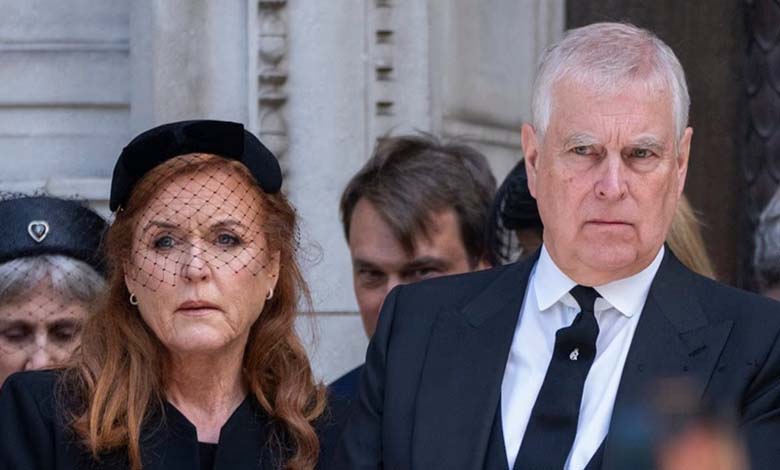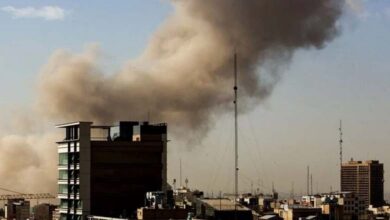Scandals Surround Andrew and Fergie: Between Imprisonment in Britain and Self-Imposed Exile

The scandals surrounding Prince Andrew, the disgraced Duke of York and younger brother of King Charles III, have intensified as he now faces a criminal investigation by London’s Metropolitan Police that could ultimately lead to his imprisonment.
-
Britain Strengthens Its Navy with Drones: 24 Unmanned Vehicles Worth £150 Million
-
Eyes in the sky and patrols on the ground: securing Trump’s visit to Britain
At the same time, his former wife Sarah Ferguson, widely known as “Fergie,” is under a separate probe into the alleged misuse of charitable funds, with growing speculation that the couple may be forced to leave the United Kingdom, according to The New York Post.
British historian Andrew Lownie, author of The Rise and Fall of the House of York, told journalist Paula Froelich on NewsNation that the investigation into Andrew involves a series of allegations of misconduct and misuse of public office.
-
An Unprecedented Pact: Britain and Germany Move Toward Joint Defence
-
Britain’s Nuclear Shield Returns to the Skies on F-35 Wings
Lownie clarified that the charges against Prince Andrew Mountbatten-Windsor, 65, the third child of the late Queen Elizabeth II and Prince Philip, are not related to sexual trafficking as has been widely rumored, but rather to suspected financial corruption and abuse of official status.
Between 2001 and 2011, Andrew served as the UK’s Special Trade Envoy, during which he cultivated controversial relationships with foreign businessmen and officials. His preference for five-star hotels over diplomatic residences led to exorbitant expenses and raised questions about his financial conduct.
-
5 Days of Unrest in Britain: A Trap for Starmer and a Major Challenge
-
Far-Right Targets Mosques in Britain… Muslims Live in Great Anxiety
Police are also investigating claims that in 2011 the prince asked a police officer to obtain private information about Virginia Giuffre, who accused him of sexual assault when she was a minor.
Giuffre’s memoir, Nobody’s Girl, published posthumously after her death in October, alleges that Jeffrey Epstein coerced her into having sexual relations with Prince Andrew on three occasions, including one when she was 17 years old.
-
Raghad Al-Tikriti… Satan’s Ally in Britain and the Distinct Face of the Muslim Brotherhood
-
Labor, Espionage, and Assassinations… A Book Unveiling Britain’s Relationship with the Brotherhood Since Its Inception
The case has reignited outrage among anti-monarchy groups. The campaign Republic has demanded that Prince Andrew face formal accountability for corruption, misconduct, and abuse of office, arguing that such cases highlight the urgent need to redefine and modernize the British monarchy’s role.
Meanwhile, Sarah Ferguson, 66, is under investigation for allegedly misusing proceeds from her books and promotional deals that were intended for charitable purposes.
“Fergie used charities primarily as a means of personal profit, which has now put her in serious trouble,” said historian Andrew Lownie.
-
After the ban on Hizb ut-Tahrir… What is the fate of the Muslim Brotherhood in Britain?
-
Washington, Canada, and Britain Impose Sanctions on Riad Salameh
He predicted that mounting legal and media pressure will likely drive both former spouses to leave Britain: “Prince Andrew may eventually settle abroad, while Fergie could move to Portugal or Switzerland, maintaining limited residency in London thanks to support from her social circle.”
These investigations represent a crucial test for the British monarchy, which is already under strain following a series of scandals that have eroded public trust. The cases targeting Prince Andrew focus on financial misconduct and abuse of office, while those concerning Ferguson could lead to civil penalties or restrictions on her charitable activities.
-
Britain on the Verge of Banning Iran’s Revolutionary Guard and Designating It as a Terrorist Organization
-
Libya – Bashagha attacks Britain and asks for Western support in exchange for Libyan oil
At a broader level, these developments have reignited calls to reassess the monarchy’s place in modern British society and to demand greater transparency and accountability. Should the legal and political pressure continue to mount, the outcome could mark a significant turning point in the monarchy’s relationship with the public — potentially heralding a historic shift in the institution’s future.











